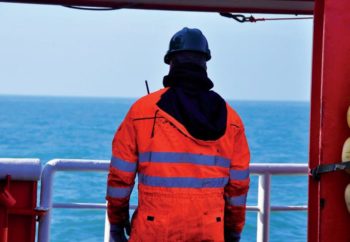
A meeting of the International Labour Organisation (ILO) Working Group of the Special Tripartite Committee (STC) was held in Geneva, Switzerland, from April 3 to 5, to examine issues related to the protection of seafarers’ wages when they are held captive on or off the ship as a result of piracy of armed robbery against ships.
The meeting of the STC, established under the Maritime Labour Convention (MLC) which covers minimum working and living standards for seafarers, brought together over 150 representatives from governments, employers’ organisations and seafarers’ associations, officials from ILO, the International Maritime Organisation (IMO) and civil society organisations.
The Working Group was assigned an additional task – to consider recommendations on improvements to the process for preparing proposals for amendments to the Code of the MLC, 2006.
The group prepared proposals and produced reports for the third meeting of the STC taking place in April 2018. The final report of the Working Group includes three different proposals to the next STC related to the protection of seafarers’ wages during piracy or armed robbery against ships.
Under the proposals from the discussion’s outcome, it has been determined that seafarers are entitled to wages during piracy incidents. Shipowners’ obligations toward seafarers should continue until they are released or until the date of death if they die while in captivity. Shipowners should continue to remit allotments to persons nominated by the seafarer. In addition, seafarers cannot be fired while held captive.
The International Marine Contractors Association (IMCA) participated in the meeting on behalf of the Maritime Employers’ Group.
Speaking at the meeting, Eleni Antoniadou, IMCA’s Policy and Regulatory Affairs Adviser, welcomed the discussions and expressed IMCA’s appreciation for previous amendments to the MLC (that came into force as of 18 January 2017), which protect abandoned seafarers, and provide financial security for compensation to seafarers and their families in cases of seafarers’ death or long-term disability.
The Maritime Employers’ Group demonstrated that there was no need to consider the establishment of an additional financial security system to address cases of non-payment of wages during piracy or armed robbery, on the grounds that financial security in cases of abandonment already exists and covers instances of non-payment of wages.
IMCA expressed its support for establishing “a clear and efficient process” at ILO for proposing amendments to the MLC, as this would provide transparency, avoid overlapping regulation, and also ensure proportionate measures on issues that arise. The current lack of a robust amendment process has led to matters such as the piracy wages being discussed for potential regulation, even though there is no solid data on which to base such regulation, according to IMCA.
“We are delighted that the Convention has been ratified by 82 Members. However, we would still like to see the Convention ratified in many more countries to reach the original objective of ratification in line with MARPOL, SOLAS and STCW, and we offer our continued support to the Office to encourage such ratifications,” Antoniadou further said.